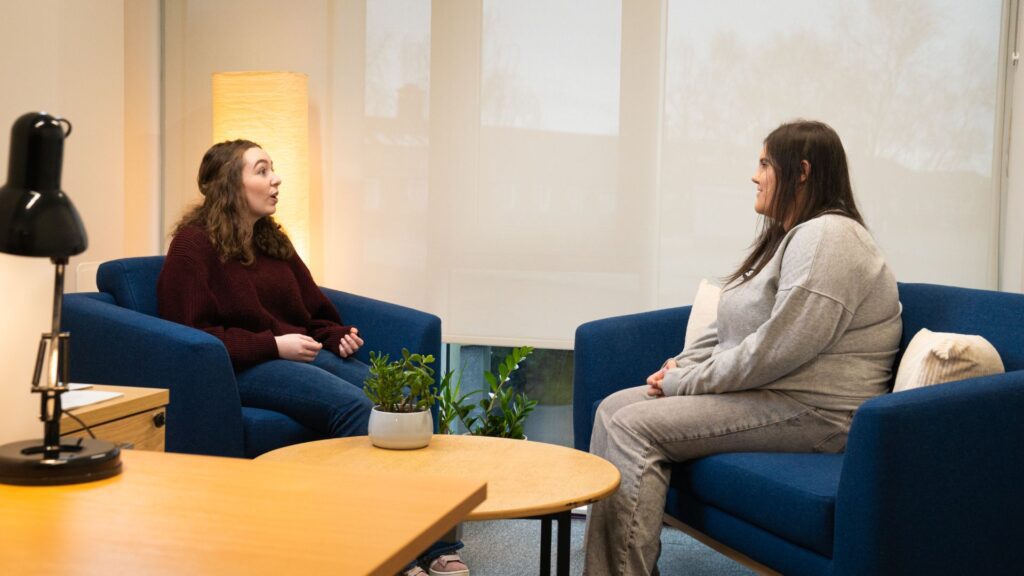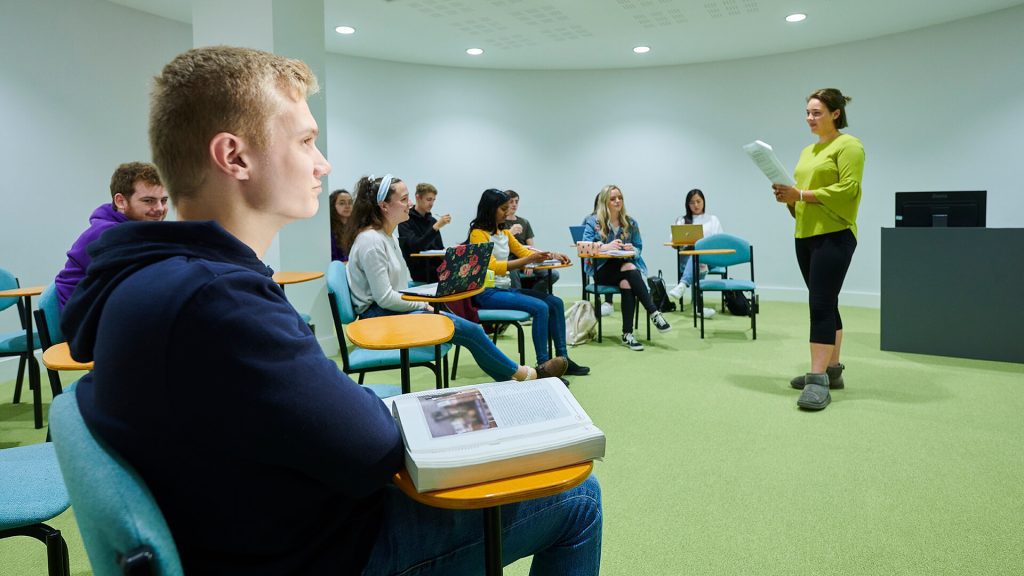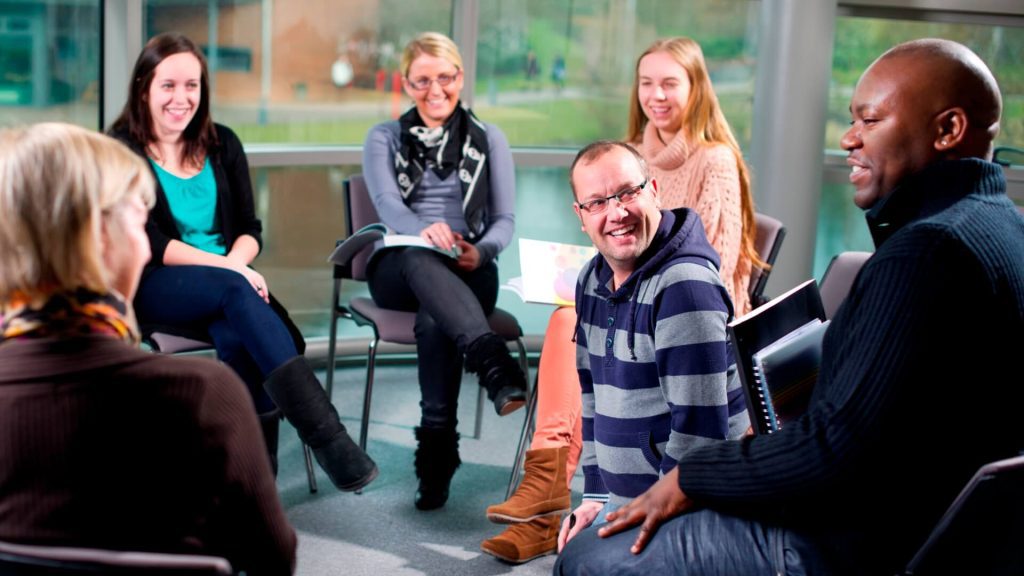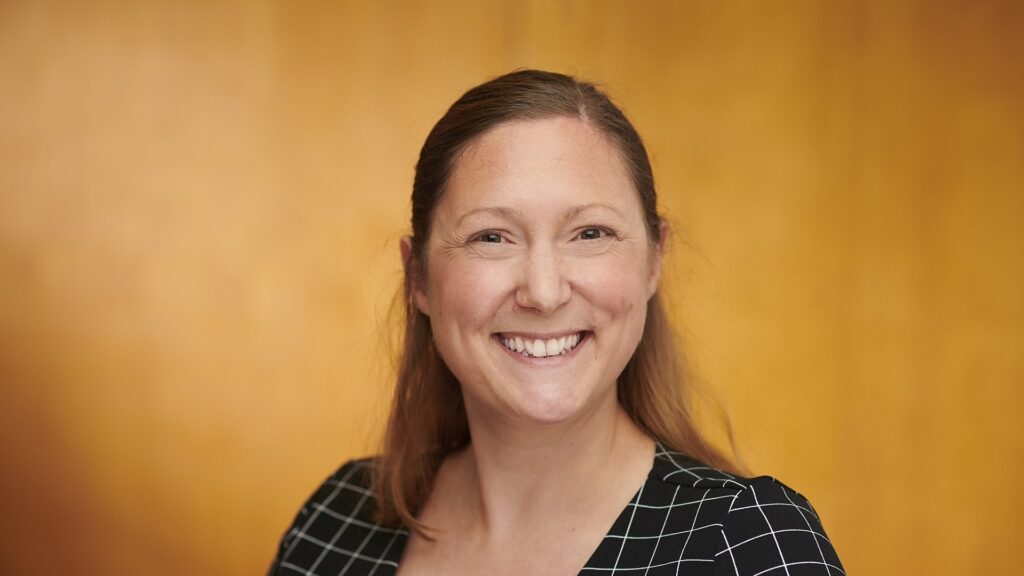Coaching Psychology MSc
Ready to continue your psychology journey by pursuing a professional practitioner route? Or perhaps you’re considering future training in clinical psychology? Develop the skills, knowledge and attitudes essential to working with clients who have psychological needs on this MSc Coaching Psychology degree.
Overview
| Course length: | 1 year full-time 2 years part-time |
|---|---|
| Start dates: | September 2026 |
| Location: | Edge Hill University |
| Example offers: | At least a 2:1 or equivalent in Psychology and Graduate Basis for Chartered Membership with the British Psychological Society. View full entry criteria |
| Subject(s): | Psychology |
| Faculty: | Arts and Sciences |
| Department: | Psychology |

With a strong emphasis on skills development, underpinned by extensive simulated and real-world practice, the immersive opportunities on this Masters degree will allow you to refine core coaching skills through role play, case-based scenarios, and supervised placements. You will also benefit from developing these skills within our bespoke Coaching Clinic.
The programme has been carefully designed to ensure you graduate as a highly skilled, reflective coaching practitioner, ready for roles in a range of professional settings, including business, health, and education. This Masters centres on the scientist-practitioner model and a process-based cognitive-behavioural approach.
You’ll also develop skills in relationship-building, intervention techniques, research, psychometric assessment and reflective practice. You’ll focus on ethical conduct, self-reflection, and client engagement within a structured and supportive learning environment, building on your ability to work with clients seeking coaching for personal, professional, or organisational development.
Course features
-
International students can apply
-
Professional practice placements
What you'll study
Throughout the programme, you will explore a range of key topics designed to equip you with an advanced understanding of Coaching Psychology theory and practice, and how these principles are applied in personal, professional and organisational contexts. From modules that explore how personality psychology can enhance performance to those that examine evidence-based coaching techniques, we’ll provide you with critical knowledge and skills needed to pursue a career as a Coaching Psychologist. You will also learn advanced research skills and how they apply within the scientist-practitioner model of Coaching Psychology. Our Supervised Practice module will enable you to gain essential experiential training that will help you develop and demonstrate practically relevant coaching skills under the supervision of our registered Coaching Psychologists.
How you'll study
The course includes both intensive workshops and placement-based learning, providing you with both theoretical insights and real-world experience. You can study full-time over one year or part-time over two years, with on-campus teaching providing ample face-to-face support and interaction.
How you'll be assessed
Assessment is varied and designed to reinforce practical learning. Formative assessment includes structured role plays, interactive discussions, and reflective exercises, while summative assessment involves observed practice, reflective logs, oral presentations, critical essays, and written reports. This approach allows you to build confidence in your skills gradually, receiving ongoing feedback in a supportive environment. The Learning Edge VLE (Blackboard) supports the learning experience, providing resources and enabling you to track your development throughout the course.
Who will be teaching you
Psychology is a rapidly growing department at Edge Hill University with academic experts who are research active and registered practitioner psychologists. On our MSc Coaching Psychology course, you will be taught by leading experts in areas such as coaching, cognitive-behavioural science, well-being and behavioural change. Our team comprises of Chartered Coaching Psychologists who undertake regular supervision and training as part of their registration to the Health and Care Professions Council (HCPC).
Department of Psychology staff have been published in major national and international peer reviewed journals such as:
- International Coaching Psychology Review
- Journal of Basic and Clinical Health Sciences
- Counselling Psychology Quarterly
- BMC Palliative Care
- Journal of Contextual Behavioural Science
- British Journal of Health Psychology
- Journal of Genetic Counselling
- Lancet Psychiatry
Where your course includes optional modules, these are to provide an element of choice within the course curriculum. The availability of optional modules may vary from year to year and will be subject to minimum student numbers being achieved. This means that the availability of specific optional modules cannot be guaranteed. Optional module selection may also be affected by timetabling requirements. Some restrictions on optional module choice or combinations of optional modules may apply.
Entry criteria
You should have a degree equivalent to UK upper second-class honours (2:1) or above, in psychology, as well as the Graduate Basis for Chartered Membership (GBC) with the British Psychological Society.
You will also need to demonstrate attaining a minimum of upper second-class honours (2:1) or above in your dissertation module (or equivalent final-year research project). This will be evidenced by supplying a detailed copy of your degree transcript (or equivalent) as part of your application.
An interview may form part of the selection process.
Please note, the above examples may differ from actual offers made. A combination of A Level and BTEC awards may also be accepted.
If you have a minimum of two A Levels (or equivalent), there is no maximum number of qualifications that we will accept UCAS points from. This includes additional qualifications such as Extended Project Qualification (EPQ), AS Levels that haven't been continued to A Level, and General Studies AS or A Level awards.
English language requirements
International students require IELTS 6.5, with a score no lower than 6.0 in each individual component, or an equivalent English language qualification.
If your current level of English is half a band, one band, or one-and-a-half bands lower, either overall or in one or two elements, you may want to consider our Pre-Sessional English course.
How to apply
There is an online application process for this course.
Application links for 2026/2027 entry will be added when available.
Please see our international student pages for further information about how to apply as a prospective international student.
Should you accept an offer of a place to study with us and formally enrol as a student, you will be subject to the provisions of the regulations, rules, codes, conditions and policies which apply to our students. These are available at www.edgehill.ac.uk/studentterms.
There’s plenty of opportunities to come take a look around campus. Attend one of our open days to see what life at Edge Hill University is all about.
Book an open day
Facilities
 The £6million Law and Psychology building provides contemporary teaching and learning facilities for students in the Department of Psychology and the School of Law, Criminology and Policing.
The £6million Law and Psychology building provides contemporary teaching and learning facilities for students in the Department of Psychology and the School of Law, Criminology and Policing.
The three-storey building includes a 250-seat lecture theatre, seminar and tutorial rooms, and social learning areas which encourage a more informal and interactive style of learning. There are also specially designed laboratory and experimental facilities for psychological research.
Where you'll study
Learning resources
Psychology resources include state-of-the-art eye trackers, transcranial direct current stimulation (tDCS) methods, and near-infrared spectroscopy (NIRS) for examining cognitive functioning and brain activity. Other specialist laboratories include a group testing laboratory, bi-directional observation rooms, a ‘bar simulation laboratory’ (for alcohol research), audio-visual suites and dedicated IT facilities equipped with subject specific software installed to support experimental work.
Finance
Tuition fees
EU/EEA and Swiss students who have settled or pre-settled status under the EU Settlement Scheme, as well as Irish nationals, may be eligible for the UK tuition fee rate.
Your future career
Psychology is a rapidly growing department at Edge Hill University with academic experts who are research active and registered practitioner psychologists. On our MSc Coaching Psychology course, you will be taught by leading experts in areas such as coaching, cognitive-behavioural science, well-being and behavioural change. Our team comprises of Chartered Coaching Psychologists who undertake regular supervision and training as part of their registration to the Health and Care Professions Council (HCPC).
Department of Psychology staff have been published in major national and international peer reviewed journals such as:
International Coaching Psychology Review
Journal of Basic and Clinical Health Sciences
Counselling Psychology Quarterly
BMC Palliative Care
Journal of Contextual Behavioural Science
British Journal of Health Psychology
Journal of Genetic Counselling
Lancet Psychiatry











